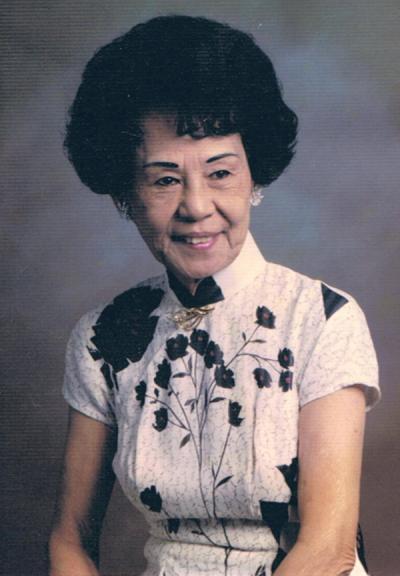History records the achievements of individuals and put on them on the road to posterity. But there are individuals who have transformed societies by their actions, yet they remain unknown. A great Mauritian passed away on 6 January 2014. Her name was Madeleine Rose Leung Shing. Who was she?
Madeleine Rose Leung Shing, known as Chu Tse Hing, maiden name Ah-Chuen, was the last of a generation. She passed away at the age of 93, after a series of hip operations. She was one of her kind, a colourful woman, a humanitarian and a woman of substance. She was the matriarch of the Ah-Chuen and Leung Shing families and left a legacy behind.
The third daughter of Chu Wei Chuen and Li Choi, she was born in 1921, and married in 1943 to Pierre Woon Sen Leung Shing, father of Emmanuel, the former Attorney General and Minister of Justice. Her father and mother opened a shop in the Mount, near Pamplemousses, where Madeleine Rose grew up, like many young Mauritian girls of that time. Her eldest brother was Jean Etienne Moi Lin, born in 1911, who became one of the most well known and respected politicians, and eventually received a knighthood for his contribution to the development of Mauritius, in particular the promotion of the Export processing Zone in Hong Kong and Taiwan.
Madeleine Rose Leung Shing fondly remembered as Auntie Tse Yin had a modest and humble beginning. She inherited values from her parents which made her an exceptional person. Through hard work and determination, she became a teacher, and made sure that her children Emmanuel, Georges, Therese, Noel and Louis, received the best education. Auntie Tse Yin believed that education was the key for economic success and individual growth. Besides English, French and Kreol, she also spoke Hakka, Mandarin and Cantonese. To her language was a form of identity and she spared no effort to get her children, nephews and nieces to learn Hakka. In her presence the children could not speak Kreol, such was her determination to impart her heritage to the new generation.
Auntie Tse Yin could be described as a social revolutionary, a feminist and a leader. She was a person of action and believed in service to the community. Her actions made her a great humanitarian. She single-handedly organized fund-raising activities to support the fight against the Japanese invasions during the Second World War. As the President of the Association of Volunteers and of the Chinese Women’s Association, she was very active in community service, raising funds for the Red Cross during war years. Her involvement with the Red Cross showed her true humanitarian qualities. She volunteered her time to work on political campaigns and was key to the political successes of Jean Ah-Chuen and Emmanuel Leung Shing. She was a visionary, a natural leader and accompanied her husband to Buckingham Palace to receive the C.B.E. award. It was a proud moment for the family. She could have been a successful politician herself, but she chose to serve the people through her community activities. Auntie Tse Yin was humble and her humility was a true sign of leadership.
In the Chinese community Auntie Tse Yin was revered and respected. People from all walks of life sought her advice and guidance. She had time for everyone to share her wisdom. She was firm, yet noble. In public she never went unnoticed. Auntie Tse Yin was full of charm and grace, her beauty and personality attracted people to her. Her intellect combined with her culinary talents made her one of a kind. She was a gem.
In her tribute, Therese spoke eloquently about her mother. Her words were emotional, yet powerful to send her mother’s message. She shared some of her mother’s attributes — she was kind, compassionate, strict but loving, caring and sensitive. Therese stood on the podium at the church service and expressed her thoughts. Like her mother, she showed grace and charm.
For her generation, Auntie Tse Yin was ahead of her time. Her thinking was revolutionary and her ideas were forward looking. At a time when the country was trying to invent itself and break away from its colonial ties, she was proposing measures on social reforms, equality, education, and political development. Quietly, she led her campaigns. Politicians from all political parties admired her leadership and organizational skills. To the Chinese community, she was an inspiration, a revered woman with exceptional qualities. To many Mauritians she was an unknown person, yet she commanded tremendous respect and admiration. People like her shape our history, yet they remain unknown. I hope the legacy of Auntie Tse Yin lives on.
Auntie Tse Yin shall be remembered as a great Mauritian woman. She inspired her children and the new generation. Tributes poured from all over the world for this Hakka Lady who made a big difference.
I would like to thank Philip Ah Chuen for sharing some thoughts on Auntie. His stories helped me understand this remarkable personality.
Rest in peace Auntie Tse Yin.
MADELEINE ROSE LEUNG SHING : A Woman of Substance
- Publicité -
EN CONTINU ↻
- Publicité -

